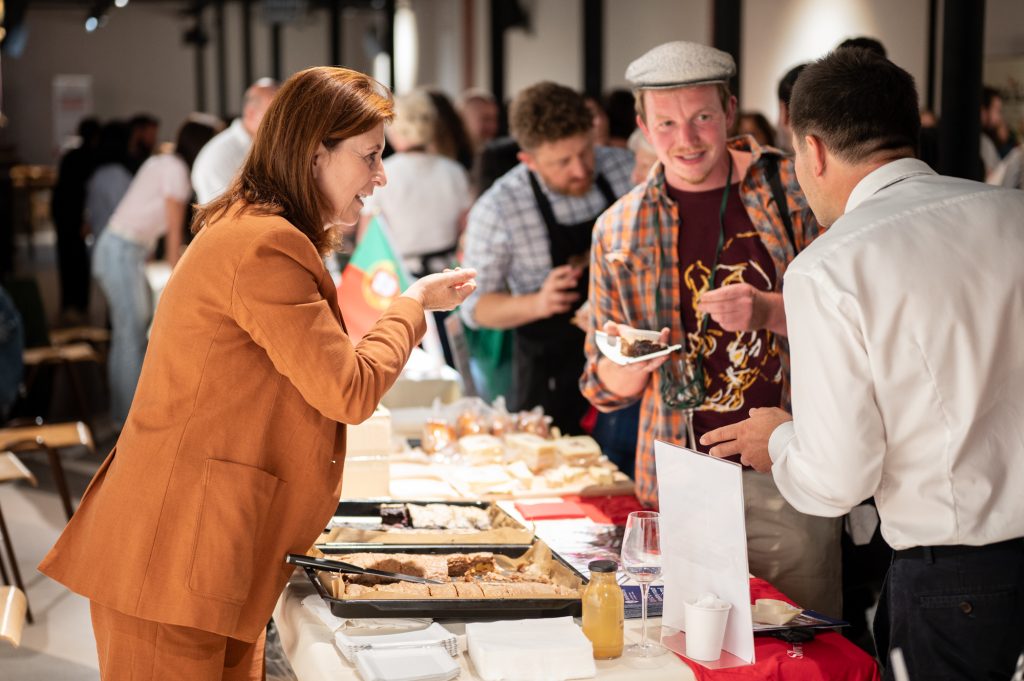Bridging local and European agendas for the future of food
Energy Cities joined Slow Food’s Terra Madre Europe event to exchange on the role played by cities
As the European Commission prepares its vision for agriculture beyond 2027, we are at a pivotal moment to rethink the Common Agricultural Policy (CAP). The ongoing Strategic Dialogue on the Future of EU Agriculture, launched by the European Commission, highlights the need for a more sustainable and place-based food system. In this context, Slow Food’s Terra Madre Europe event (Brussels, 22-24 June) served as a platform to engage in such dialogues.
Putting local authorities and citizens at the heart of the food systems transition
Particularly interesting for Energy Cities’ work on food systems and land policies was the session with Marta Messa (Secretary General, Slow Food), Ricard Ramon i Sumoy (Head of Unit on Policy Perspectives, DG AGRI), Jacopo Goracci (Slow Food farmer), and Sandrine Vokaer (Head of the Good Food Department, Brussels Environment). Empowering local actors and agroecological models in shaping Europe’s agricultural future was indeed the focus of the discussion.
The reform of the CAP post-2027 is an opportunity to address structural challenges in our food systems. As Ricard Ramon i Sumoy pointed out, regions and cities must play a greater role in implementing agricultural policies that reflect territorial needs. Moving beyond a one-size-fits-all model, the future CAP should support place-based, bottom-up approaches that put agroecology and citizens at the heart of the transition.
The representative from DG AGRI also announced a forthcoming initiative, Food Dialogues, aiming at creating spaces across scales, where farmers, local authorities, and civil society can engage in discussions and recommendations for the policy-making process. By inviting cities, rural regions, and networks to the table, the EU is beginning to recognise that resilient food systems emerge from cross-scale collaboration. This is seen as a departure from a purely national or sectoral approach, toward one that is more reflective of Europe’s territorial diversity.

Brussels’ example: the Good Food Strategy
Going from the European scale to the local, Brussels Environment offered a tangible example of how local governments can shape food policy. Sandrine Vokaer presented the Good Food Strategy developed by Energy Cities’ member Brussels-Capital Region. The initiative promotes seasonal, organic, and reduced-animal-protein diets while enhancing citizen participation. The initiative targets the development of new urban farming projects with an objective of producing 30% of fruit and vegetables locally by 2035. As access to land has been challenging for most European cities aiming to increase urban food production, the strategy plans to facilitate access to diverse production sites, but also to preserve existing farmland in the Brussels Region and its outskirts. In fact, in 2015, only 1.5% of the surface area of the Brussels Region was used as farmland.
By fostering place-based food strategies and connecting rural and urban communities, discussions from Terra Madre demonstrated the potential of regions and cities to connect and support farmers towards the agroecological transition.
Curious to learn more about sustainable food systems? Join our HUB and subscribe to our newsletter to get inspired by our members’ stories!

